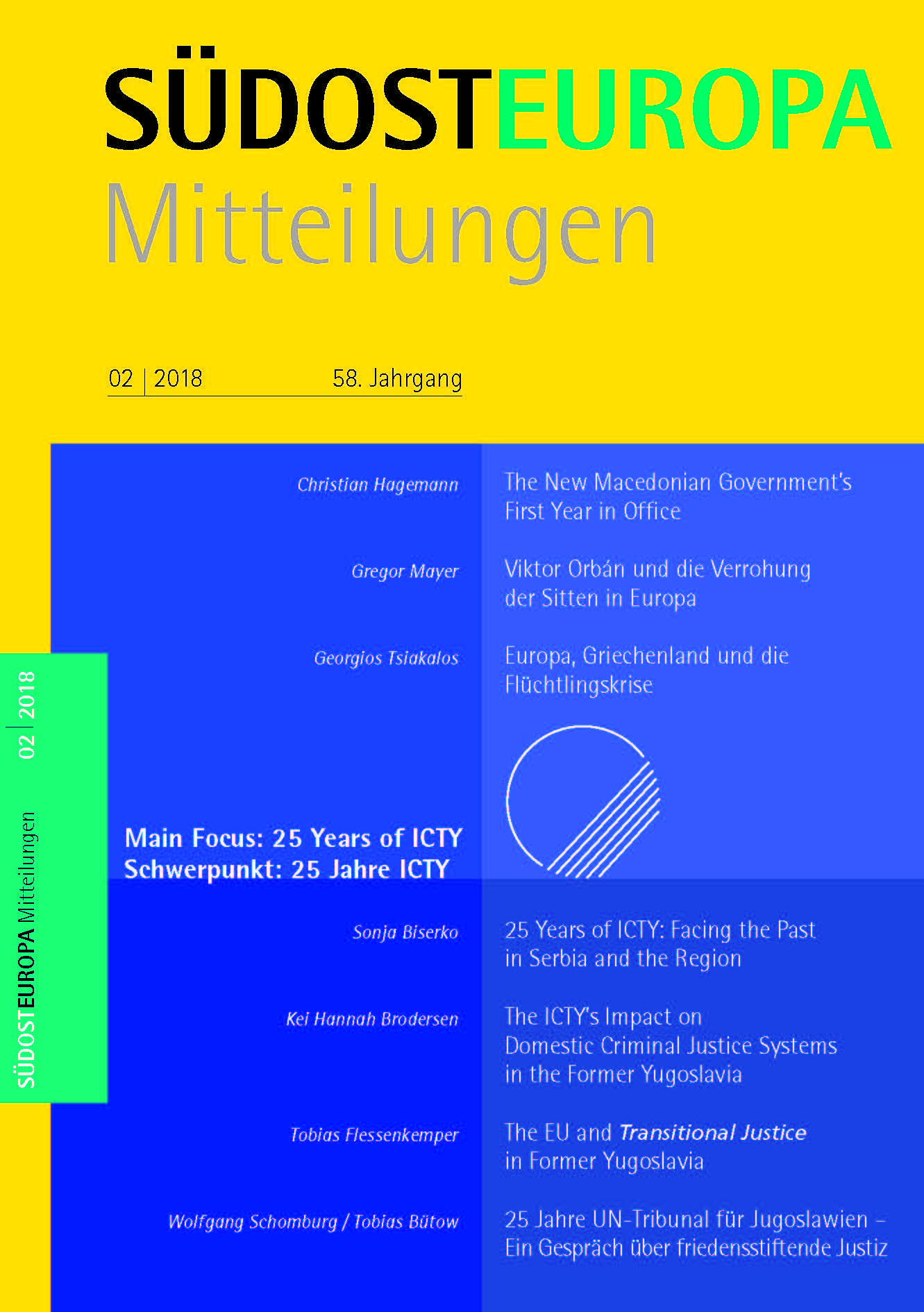The EU and Transitional Justice in Former Yugoslavia
The EU and Transitional Justice in Former Yugoslavia
Slow Support, Spent Ambition, Lowered Expectations
Author(s): Tobias FlessenkemperSubject(s): Law and Transitional Justice
Published by: Südosteuropa Gesellschaft e.V.
Keywords: EU;former Yugoslavia;transitional justice;
Summary/Abstract: The article discusses how the European Union approached – first slowly and hesitantly, then ambitiously and lately with lowered expectations – transitional justice in the countries of former Yugoslavia. Recently, in its 2016 Global Strategy, the EU moved further away from the issue by reframing international and transitional justice into concepts of societal resilience. Starting with the establishment of the International Criminal Tribunal for the former Yugoslavia (ICTY) in 1993, three loosely defined phases of EU engagement can be identified: 1) emerging support for transitional justice mechanisms between 1991 and 1999; 2) the period when the EU was aiming to shape the region and the transitional justice discourse, leading to spent ambition (1999-2014); and 3) lowered expectation inside and outside the EU from 2008 onwards.
Journal: Südosteuropa Mitteilungen
- Issue Year: 2018
- Issue No: 02
- Page Range: 88-100
- Page Count: 23
- Language: English
- Content File-PDF

